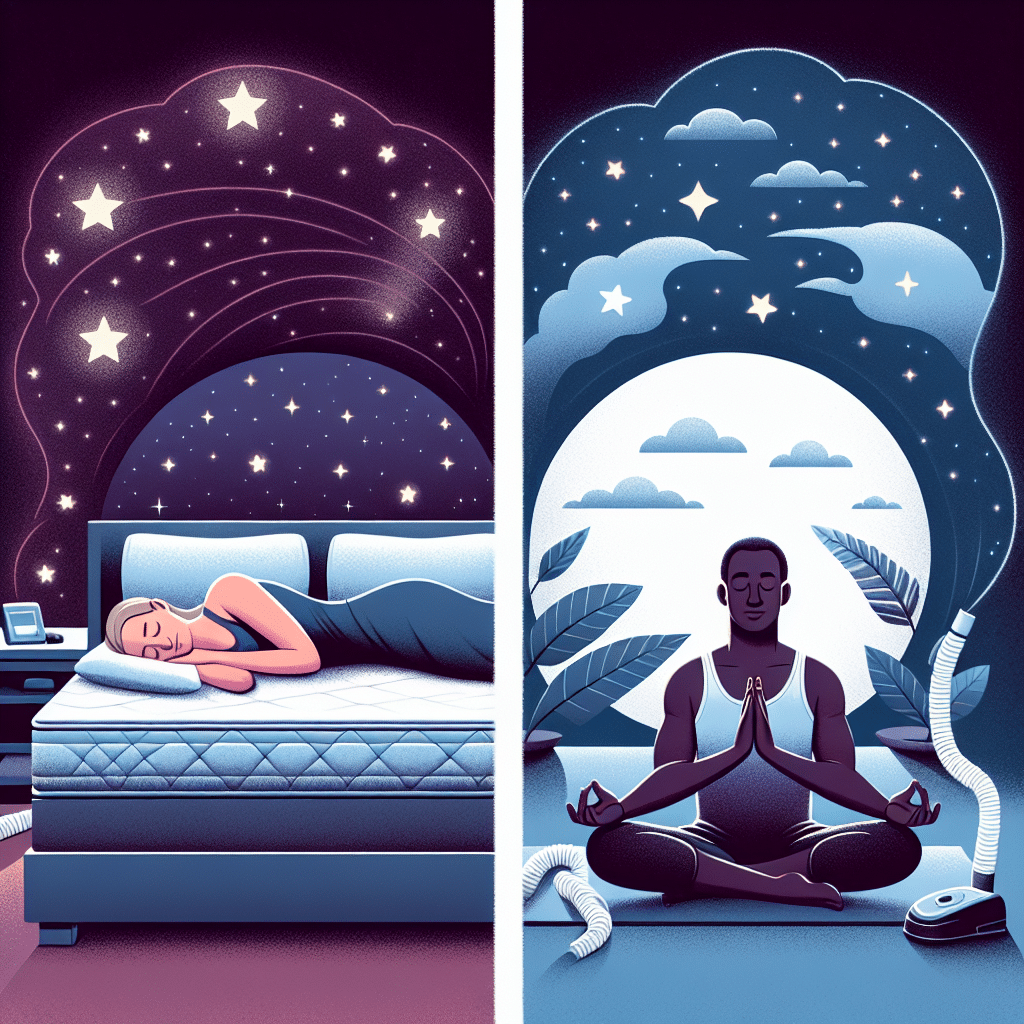Understanding Sleep Disorders
Sleep disorders can disrupt every facet of daily life, affecting physical health, emotional well-being, cognitive function, and social interactions. Treatments for sleep disorders are multifaceted, including lifestyle changes, therapies, medications, and alternative approaches. This article outlines various treatment options categorized by the type of sleep disorder.
1. Insomnia Treatment Options
Cognitive Behavioral Therapy for Insomnia (CBT-I)
CBT-I is often the first line of treatment for insomnia. This structured program helps identify and replace thoughts and behaviors that cause or worsen sleep problems. Techniques include sleep restriction, stimulus control, and relaxation training, promoting a healthier sleep pattern over time.
Medications
While not the primary treatment, medications can be effective for short-term relief. Common options include benzodiazepines (e.g., temazepam) and non-benzodiazepine sleep aids such as zolpidem. Melatonin receptor agonists, like ramelteon, may also be prescribed for patients seeking alternatives to traditional sedatives.
Lifestyle Modifications
Good sleep hygiene practices are essential. Recommendations include consistent sleep schedules, a dark and cool sleep environment, and limiting exposure to screens before bed. Regular exercise, particularly aerobic activity earlier in the day, can significantly improve sleep quality.
2. Sleep Apnea Management
Continuous Positive Airway Pressure (CPAP)
CPAP therapy is the gold standard for moderate to severe obstructive sleep apnea. A CPAP machine delivers a constant flow of air to keep the airway open during sleep, significantly reducing apneic episodes and improving oxygen saturation.
Oral Appliances
Dental devices can be effective for mild to moderate sleep apnea. These custom-made appliances reposition the jaw and tongue to maintain an open airway. They are a viable alternative for those who cannot tolerate CPAP machines.
Lifestyle Changes
Weight loss plays a crucial role in reducing sleep apnea symptoms, particularly among overweight individuals. Other recommendations include avoiding alcohol and sedatives, sleeping on one’s side, and elevating the head of the bed.
3. Restless Legs Syndrome (RLS) Approaches
Iron Supplementation
A deficiency in iron is often linked to RLS. Iron supplements or dietary adjustments can alleviate symptoms, particularly in individuals with low serum ferritin levels.
Dopaminergic Medications
Drugs that balance dopamine in the brain, such as pramipexole and ropinirole, are commonly prescribed for RLS. While effective, these medications may lead to augmentation, where symptoms worsen after extended use.
Non-pharmacological Strategies
Engaging in regular physical activity can help reduce symptoms. Techniques such as hot baths, massage, and compression socks may also provide relief for some individuals.
4. Narcolepsy Treatments
Stimulants
Medications such as modafinil or armodafinil are commonly used to promote wakefulness in narcolepsy patients. These medications help manage excessive daytime sleepiness.
Sodium Oxybate
Sodium oxybate is a powerful medication prescribed for narcolepsy that helps improve nighttime sleep and reduces cataplexy episodes. It is crucial, however, to use this drug under close medical supervision due to potential side effects.
Lifestyle Adjustments
Scheduled naps throughout the day can drastically improve alertness for those with narcolepsy. Developing a regular sleep schedule and creating an environment conducive to sleep can also reduce symptoms.
5. Circadian Rhythm Disorders
Bright Light Therapy
For conditions like delayed sleep phase disorder, bright light therapy helps reset the body’s internal clock. Exposure to bright, artificial light in the morning can shift sleep patterns, encouraging an earlier sleep time.
Chronotherapy
This method involves gradually shifting bedtime by staying up successively later until a desired sleep schedule is achieved. Implemented with caution, it’s crucial to coordinate this with a healthcare provider for the best results.
Melatonin Supplementation
Melatonin supplements can help individuals regulate their sleep-wake cycle, especially in conditions like shift work disorder or jet lag. Dosages and timing are critical for effectiveness, requiring consultation with a healthcare professional.
6. Alternative Therapies
Acupuncture
Some studies suggest acupuncture can promote relaxation and improve sleep quality by stimulating specific points on the body. While evidence is still emerging, it can be a beneficial adjunct therapy for certain individuals.
Yoga and Meditation
Mind-body practices such as yoga and mindfulness meditation have been linked to reduced insomnia symptoms and improved overall sleep quality. These practices enhance relaxation and may decrease anxiety and stress, which can interfere with sleep.
Herbal Remedies
Herbal supplements like valerian root and chamomile have been traditionally used for sleep improvement. However, clinical outcomes can vary significantly among individuals; consulting with a healthcare provider regarding safety is advised.
7. Future Directions in Sleep Disorder Treatments
Research continues to evolve concerning sleep disorders, focusing on personalized medicine and innovative treatments. Genetic studies may illuminate new pathways for therapies tailored to an individual’s sleep profile. Neuromodulation techniques, including transcranial magnetic stimulation, are also being investigated for potential effectiveness in treating various sleep disorders.
8. Continuous Monitoring
Sleep Studies and Home Testing
Polysomnography (sleep studies) are essential for diagnosing many disorders. Home sleep apnea testing offers a convenient, less invasive alternative that can quickly identify obstructive sleep apnea, increasing the accessibility to necessary care.
Wearable Devices
Emerging technologies provide ways for individuals to monitor their sleep patterns through wearable devices. These devices can offer insights into sleep quality and suggest personalized adjustments based on collected data.
Conclusion
Sleep disorders encompass a wide range of conditions, each requiring a tailored approach to treatment. The effectiveness of treatments varies, necessitating individualized plans that may combine medication, therapy, and lifestyle modifications. Staying educated on the latest research and treatment methodologies can empower individuals to take charge of their sleep health, improving overall quality of life and well-being.
